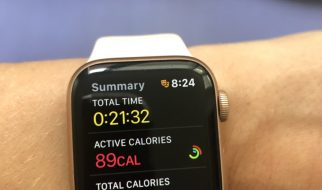
A great cover letter can make the difference in getting a potential employer or recruiter to pay attention to your job application and resume. At the executive level, when you are competing with others who likely also have impressive work histories and plentiful accomplishments, a cover letter needs to intrigue a potential employer so that they?ll want to spend more time reading your resume and learning about why you are the right person for the open executive position.
What makes an executive cover letter successful and gets the attention of a hiring manager? It needs to be bold ? and it needs to be interesting. An executive cover letter needs to get to the point, and it needs to speak to the needs of the person reading it. Remember, yours is far from the only cover letter that a manager, recruiter, or human resources professional will be reading in a day. You want to stand out ? and stand out in the right way.
And if you?re wondering, ?Why do I even still need a cover letter at the executive level?? you can find my answer to that in this article.
You can also just trust me ? as a professional executive resume writer and human resources professional ? that you absolutely do need an executive cover letter for your job search. Keep reading here to get started now with the tips that will help you write a great cover letter.
Using a Cover Letter Template ? Yes or No?
How important is it to have a cover letter template to help you write an effective cover letter? It?s not. In fact, using a cover letter template is going to backfire ? and is not going to help you write a great executive cover letter. Just don?t do it. It might seem like the easy, simple solution and a way to get all the information in it that you need, but what it will really do is stunt your ability to express your personal brand and signal to a potential employer that you prefer to take the easy way out. Trust me, they can tell when someone has used a template to write an executive cover letter or an executive resume.
Now, this is not to say that you can?t use a sample cover letter, or even a template, as a guide for writing yours. Just make sure that you are using it only to get ideas and help you with formatting ? and not using it as a fill-in-the-blanks form letter.
A great executive cover letter is your own ? after all, it is your career story you are trying to tell and your personal brand you are trying to convey. You want the employer to hire YOU ? not the random writer on the Internet who cobbled together a template.
So how can you write a compelling executive cover letter on your own? Here are some of my top cover letter writing tips.
Tips For Writing a Successful Executive Cover Letter
Tailor it to the job.
The last thing you want to do is send out the exact same cover letter and resume to several different employers. Each of them ? even if it is for the same job title ? is looking for something slightly different in a new employee. Every company has its own goals, its own challenges, and its own values. You want the cover letter you write to convey why you are a good fit for that specific company and its unique characteristics.
When you?re applying to different positions or titles, you are going to want to highlight the skills that match for that particular job and its required skills.
Make it Different From Your Executive Resume
In your cover letter, highlight the most important work experience and achievements that make you a good fit for the job and the company, and do so in a compelling way that isn?t just a repeat of what the hiring manager or recruiter is going to read in your resume.
Use your cover letter to tell your career story, and be very clear about why you should be the person they hire. Discuss the things that might not be immediately evident from your resume ? why you fit well with their company culture, which challenges you have overcome that are similar to challenges now facing the company, etc. As an executive, you would be a leader in the organization ? and it is important that you convey a bit of your personal brand so that they can tell why you would be a smart hire and a good fit for a leadership position at the company.
Your cover letter is also your opportunity to hook their interest and make them want to read your resume. If they read it, then look at your resume and just see the same information, except in bullet-point format, you will have lost them ? and your opportunity for an interview and the job. A successful cover letter gets a potential employer interested in you and what you have to offer.
Proofread. Proofread. Proofread.
Another way to lose the interest of a hiring manager or recruiter? Typos and grammatical errors. No matter how talented a writer you are, or how careful you think you?ve been, you simply cannot afford to skip proofreading your cover letter. Even if you have looked it over but not found any errors, take the time to send it to a trusted friend (or professional editor) to look it over for you. After you?ve read and reread the same words and phrases so many times, your eyes and brain can play tricks on you. Plus, although you know what you?re trying to say, someone else may notice a word that?s being slightly misused, and be able to suggest a better word choice or better way to say something to make your accomplishments clearer.
Errors in an executive cover letter ? especially typos ? demonstrate a lack of attention to detail, and also indicate that you didn?t care enough about the position to closely read your cover letter before sending it in. Why would a potential employer want to pay you to take on an executive position at their company if they thought you didn?t care about the job?
Give Three Reasons They Should Hire You
As you read through the job description, read about the company, and go over your own skills and accomplishments in preparation for writing your cover letter; you should be taking notes about where your work history and achievements align with the company?s needs. Having this information written down will make it much easier to write a cover letter, and it will also be easier to choose those aspects of your career ? and your personal traits ? that you want to highlight in a cover letter.
Pick the top three from this list, and build your cover letter around them. I don?t mean that in your cover letter you should say: ?Here are three reasons you should hire me: 1 ?, 2 ?, 3 ?? but rather that these are the points you need to work into your letter. Perhaps you know their sales have been dropping and you have a strong sales background ? your sales numbers from the last five years might be a point you lead off with.
Hiring managers and recruiters don?t have a lot of time to read between the lines to try to figure out why they should hire you. You need to be clear and concise. Starting from three solid points is a great way to effectively get your message across in a professional cover letter.
Start Strong and End Strong
Every. Single. Word. Matters. in an executive cover letter. Because you are trying to make a strong point in the space of just one page, you need to make sure that every sentence is strong and is in the letter for a reason. When you start a cover letter with a line such as: ?I am writing today to ask you to consider my attached resume for a position in your C-suite,? then you are just wasting valuable words ? and their valuable time.
Instead, I recommend starting your cover letter with a sentence that not only grabs their attention but provides a reason they should hire you right off the bat.
Something like: ?As the CEO of a local company, I helped to expand the business by 200% over three years. I would like to help do the same for your business.?
Here you have an achievement ? with numbers to back it up ? and you are letting the hiring manager know you already have executive experience. Trust me, you have their attention now, much more than if you were to start off with just a cookie-cutter introductory line that says nothing about your qualifications or their needs.
How you end a cover letter is also important. You want to leave them wanting more so that they read your resume; but, just as with the opening sentence, neither do you want to simply use a boring: ?I look forward to hearing from you.?
You do want to thank them for taking the time to read your letter and your resume, but don?t just leave it at that. ASK for the interview. Include an actual call to action. For example, you can close your cover letter by saying:
?Thank you for your time. I would appreciate the opportunity to interview for this position and further discuss how I can be of help to your company. I can be reached at 555-JOBS.?
And one last thing ? never start a cover letter with: ?Dear Hiring Manager? or something similarly general. Take the time to find a real person?s name to address it to before you begin writing a cover letter.
Other Cover Letter Resources
If you?re looking for inspiration and more cover letter writing tips, you can find cover letter samples at Great Resumes Fast here: https://www.greatresumesfast.com/blog/25-cover-letter-examples-and-samples-for-2014/
We also have quite a few articles about writing effective cover letters in the Great Resumes Fast blog archives. I?ve included links to a few of those below, but you can also use the blog?s search function to find even more cover letter tips.
? 5 Step Guide To Writing Cover Letters For Executives ? Grab Attention With A Compelling Cover Letter ? 5 Tips For Injecting Culture Fit Into Your Resume and Cover Letter ? How To Write A Cover Letter Recruiters Will Read ? 3 Secrets To Interview-Winning Cover Letters
If you?d like help writing your executive cover letter or executive resume, our team at Great Resumes Fast would love to work with you to help you achieve your career goals. Get in touch with us here.


